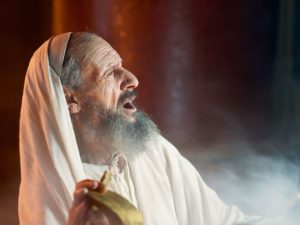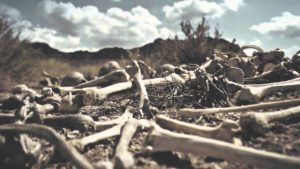What are you good at? That’s where the green-eyed monster* will get you.
I used to make ice cream from a recipe and process I developed myself: a time-consuming project for special occasions. I liked to say it was the best in the world because who could prove it wasn’t? Many years ago I was at a picnic where someone brought a bucked of homemade ice cream. I even remember the flavor: maple. Reader, it was not anywhere as good as mine, and that’s an honest objective judgement. Even so, I was surprised and a bit abashed at how much I resented the praise heaped upon that unassuming tub of inferior dessert. If only I had thought to bring my world-record peach! I was like Mrs. Smith giving Mrs. Jones the stink eye at the county fair because of the former’s purple-ribbon-winning strawberry-rhubarb pie when Mrs. Smith’s blueberry pie clearly deserved it.
Envy. It’s miserable.
Later, when I was more mature with serious ambitions of publishing a novel, any new fiction writer who accomplished that feat, with warm accolades in the New York Times Book Review, was like a stab to the heart. Especially if they were close to my own age, like Carrie Fisher. She already had fame, fortune, cool friends—why did she have to go publish a novel and get it optioned for a movie when the world was waiting for my masterpiece? Or, in less confident moods, how dare she be a better writer than me? I wouldn’t have changed places with her (even without knowing what we know now), unfortunately for me at the time, the world was full of talented fiction writers. And, even after I managed to publish a few novels, the world remained full of more popular, and more well-reviewed, and more awarded-winning novelists, and I knew some of them personally.
Envy is misery.
Now past my fiction-writing stage—probably—I still feel the old familiar twinge over Christian writers more shared, liked, and retweeted than me, especially over subjects I’ve written about. Very silly, on a par with the county pie-judging competition. Worse than silly, actually—it’s a clear violation of the Tenth Commandment. I can say my bouts of envy are less much less frequent and of shorter duration. Sanctification always has its effect, however slowly.
But it’s better to shortcut the process, and Psalm 73 (of Asaph) is just the ticket. Old Asaph put his finger on the problem: “As for me, my feet had almost stumbled. My steps had nearly slipped. For I was envious of the arrogant, when I saw their prosperity . . .” I mean, look at them! What do they know of struggle? Maybe they won second runner-up in the Miss Radian Baby pageant but after that it was red carpet all the way. What couldn’t I do with all their advantages? My cheeks hurt from insincere smiles when they announced their latest award; my hearty Congrats! over their latest book deal was wrung from a heart of lead.
“But when I thought how to understand this, it seemed to me a wearisome task, until I went to the sanctuary of God . . .” There I learned that my problem wasn’t them. My problem was me. They have their own issues to answer for, but “when my soul was embittered, when I was pricked in heart, I was brutish and ignorant: I was like a beast before you.”
Ouch.
An actual beast can be forgiven for a narrow focus and limited perspective; not me. When I try to squeeze my life into a self-focused cheering section, I’m like Nebuchadnezzar clawing for grubs and snails. Nevertheless
I am continually with you [whether I feel it or not]; You hold my right hand.
You guide me with your counsel and afterward you will receive me to glory.
Now, that’s perspective!
It’s also the only lasting cure for the misery of envy: recognition, repentance, worship. Repeat, repeat, repeat, until it becomes a habit. I’m still prodded by the green-eyed monster from time to time, but the prodding is more like peevish pokes. Some of this improvement may be due to age—time’s running out and I have more important things to worry about. But I also have much better things to anticipate.
_____________________________________________
*Othello, Act 3 Scene 3. Another phrasemaking point for Shakespeare.
**Two tips: use a mixture of whole milk (custard) and heavy cream, and whip the cream to soft peaks before you add it to the custard. And don’t skimp on the rock salt.















 Few prophets–few men or women, period–lived through as much dramatic and consequential history as Jeremiah, but he’d rather have skipped it all. Most of us would–he was a living, breathing example of “shoot the messenger.” His ministry spanned King Josiah’s reformation (he wrote an elegy for the funeral) to King Zedekiah’s rebellion that ended it all for the southern kingdom.
Few prophets–few men or women, period–lived through as much dramatic and consequential history as Jeremiah, but he’d rather have skipped it all. Most of us would–he was a living, breathing example of “shoot the messenger.” His ministry spanned King Josiah’s reformation (he wrote an elegy for the funeral) to King Zedekiah’s rebellion that ended it all for the southern kingdom.
 (throughout the period of the Judges), and failed as a Kingdom, first with Saul and then with a whole line of despotic, unfaithful kings. But this is much worse than failure.
(throughout the period of the Judges), and failed as a Kingdom, first with Saul and then with a whole line of despotic, unfaithful kings. But this is much worse than failure.